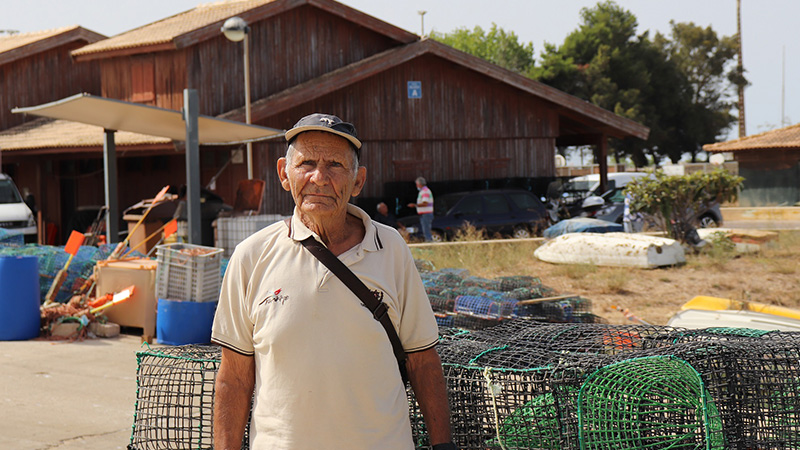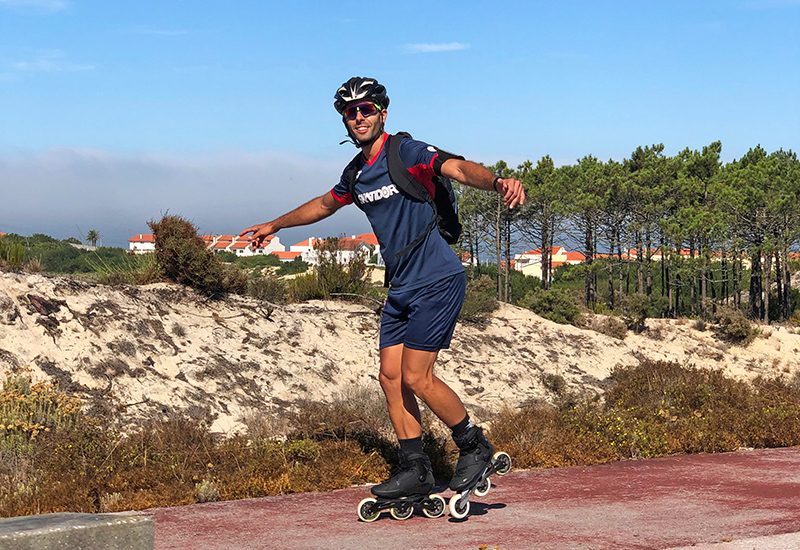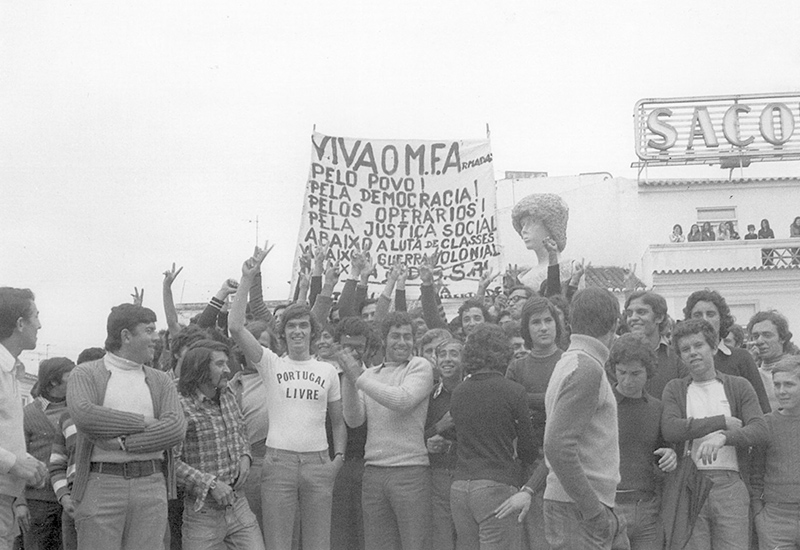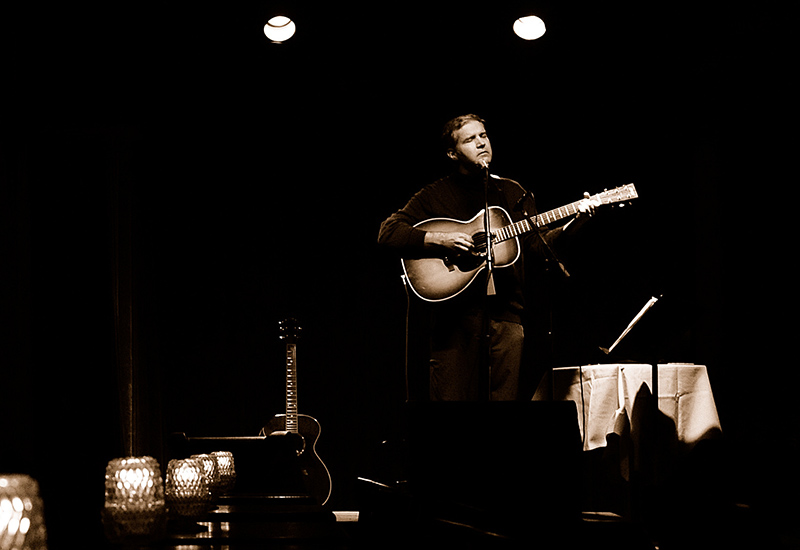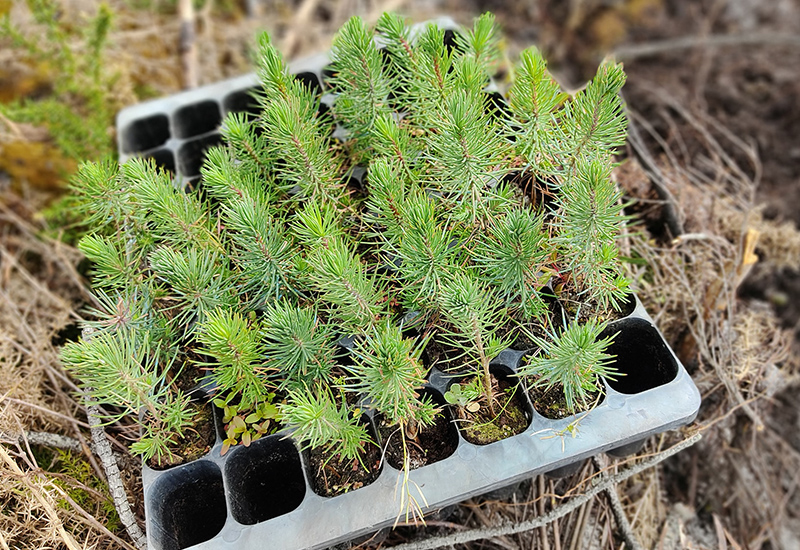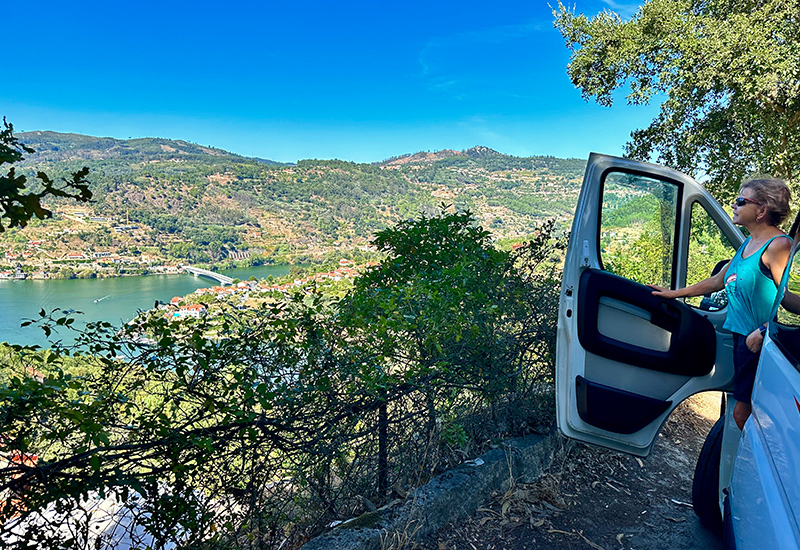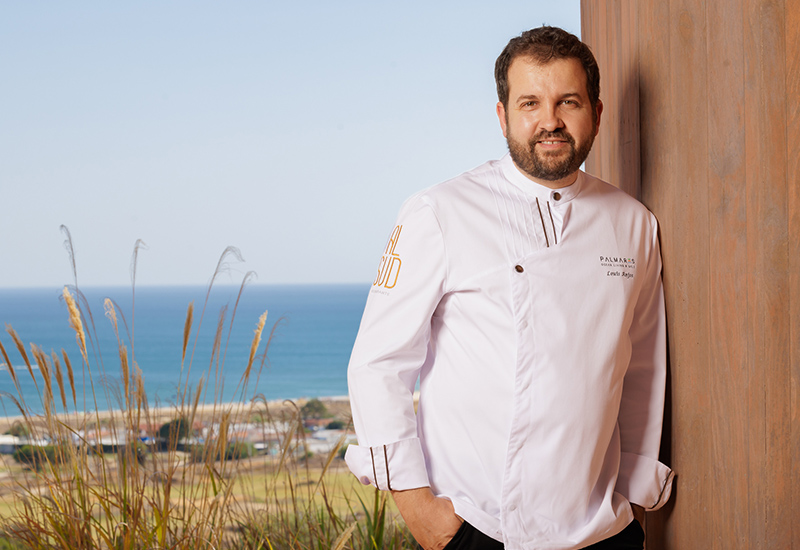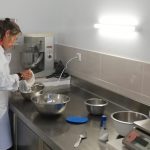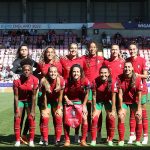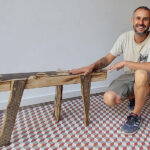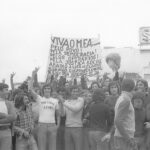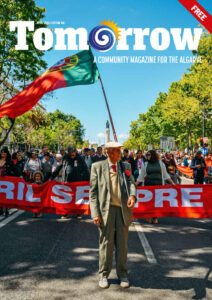Sabino Pereira is a “son” of Alvor who knows practically everything there is to know about the art of catching fish, whether it’s on a hook, with fishing rods, traps or with a net. He was just 15 when he got his maritime licence and started to go to sea, following in his father’s footsteps.
By Jorge Eusébio
Sabino Pereira’s life in cod fishing began when he was 20 years old. He spent four seasons fishing in the Greenland seas, onboard the Portuguese ship Novos Mares. He recalls that “each season lasted about six months and took place between May and October”. The boat would leave Aveiro and sail for about two weeks before reaching its destination. Although hard work, it was much more profitable than what he would have done if he’d stayed in Alvor.
The day’s work began at four o’clock in the morning, which was the time when everyone got up from their bunks. Shortly after, the cook would ring the bell, which indicated that breakfast was ready. Besides the crew, the fishermen, the supplies and the gear necessary for fishing the cod, the large vessel carried, stacked on deck, small boats, the ‘dories’, which were dropped into the sea with hooks.
Each of the 46 fishermen would get into one of them and, using the line-fishing system, try, over the following hours, to catch as many specimens of the much-appreciated fish as possible.
At these times, says Sabino Pereira, “the greatest fear we had was that a whale would come towards us”. When there were signs that one was approaching, “we made a noise, often hitting the boat with a stick so that they would be frightened and dive to the bottom of the sea”, thus preventing them from crashing into the boat. At the end of the shift, they returned to the ship to unload the catch and then counted the cod caught by each fisherman.
When the fishing was very good, “the captain would play a cassette of Northern music and the cook would give each one a bagaço and a cigarette”. But that was only when things had gone really well because “the other days there was nothing for anyone”. The workdays were long and tiring. As well as the time spent in the small boats fishing for cod, the fishermen spent hours ‘baiting’ – preparing the hooks for the next fishing trip – and preparing and salting the fish caught.
When the season was over, the boat would return to Portugal with a load that could reach 13 tons of codfish. There were times when the sea and the weather conditions did not “cooperate”, which prevented them from working and consequently reduced everyone’s income since what they received depended on what they caught. Sometimes they even took risks, making several attempts to put the boats in the water, but soon they had to hoist them back up.
What compensated for all that effort and sacrifice was the spectacle provided by nature, especially the sky, which “took all the colours, it was the most beautiful thing I had ever seen”. If it weren’t for the intense work they had to do, they could have enjoyed this panorama in peace for many hours because, for a substantial part of the time they spent there, “it was always day, there was no night”.
Every year, before setting off for distant lands, Sabino would go to Fuzeta to make the necessary registration, which guaranteed him an income of seven thousand escudos. He would add the money he would get depending on how much fish he caught.
To earn this money, however, he had to make great sacrifices, not only in terms of work but also in terms of his family. One sacrifice was not seeing his daughter born because her birth was during the cod fishing season. When he returned home, she was already three months old.
In a harsh environment like the one the fishermen faced, accidents frequently happened, fortunately, in most cases, without fatal consequences. One time, a hook came out and pierced Sabino’s hand while he was fishing. Unable to row, he had to wait for a whaleboat to come and get him. He was assisted by the ship’s nurse, “who took the hook out of my hand and gave me an injection and medication. But because of this, I ended up not being able to fish for 15 days.”
Another ship belonging to the company Sabino worked for caught the tail of a cyclone and was practically destroyed, but luckily nobody died. The most dramatic episode, in human terms, happened the last year he worked on the Terra Nova.
Due to the bad weather, “two colleagues lost their balance and fell. One of them was saved, but we couldn’t help the other one and he was left there.” The sad news was communicated to Portugal and when they returned to the port of Aveiro, they had a crowd of people waiting for them, all dressed in black as a sign of mourning for the deceased fisherman.
This episode affected Sabino Pereira in such a way that he ended up not wanting to return to cod fishing, thus closing that chapter of his life at the age of 24.
Back in the Algarve, he stayed connected to the sea until he retired, fishing for octopus, bream, sea bream, bream, porbeagle, mackerel, and conger eel. For a few years, he worked on trawlers until he decided to buy a small boat and become self-employed.
The activity was still not easy, but he recalls that “we managed to save money because the cost of living was much lower than it is today. With the end of the escudo and the introduction of the euro, everything became more expensive.”
Sabino remembers that Alvor was a very different place to the one we know today. Bathrooms were a practically non-existent luxury, and there were no sewage or water networks. The local population had to go to nearby fountains, cisterns, and wells to get their precious water supplies or wait for vendors to pass by in carts with pitchers full of water. The road that connected the village to Portimão was a dirt track, and for a long time, people had to travel in horse-drawn carts.
He also remembers a situation that nowadays seems surreal, which was that you had to get a licence to have a cigarette lighter. Sabino Pereira says he has never been fined for not having this legal authorisation, but he has seen several such situations.
From the 1960s onwards, tourists discovered the Algarve in earnest, and little by little, like much of the region, Alvor began to transform and adapt to the new leisure industry. This evolution ensured him an additional source of income. Over the last decade, in addition to his work as a fisherman, he began taking tourists to visit the caves. “I know all the holes along the coast from Benagil to Ponta da Piedade,” he says.
Many things have changed, but as far as the seafarers are concerned, it hasn’t been for the better, partly because in “his time”, you could fish anywhere and now you can’t. Besides, “they charge between 150 to 200 euros a month for a fisherman to use a small space where they can put their gear. To this must be added the sharp increase in diesel for the boats and the thousand and one restrictions and costs that exist. One must pay for everything and anything else.”
This fact leads him to conclude that “they don’t let people work, they pity the fish more than they pity the fishermen.”
This article was originally published in Portuguese in the Portimão Journal.
Photos © Jorge Eusébio
